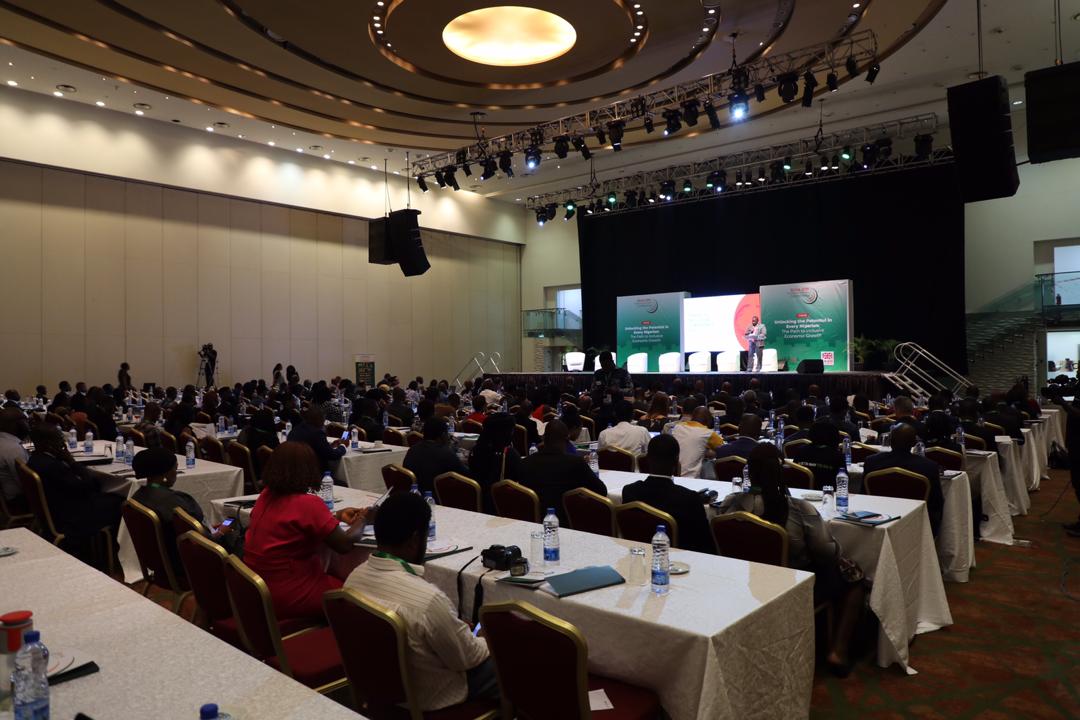Education, level of income and lack of trust in Financial Service Providers, FSPs have been identified as some of the factors leading to the exclusion of Nigerian women to financial services either formal or informal.
This was revealed in a research on women’s financial inclusion jointly conducted by the Central Bank of Nigeria’s Financial Inclusion Secretariat and Enhancing Financial Innovation & Access, EFInA. The report is titled, “Assessment of Women’s Financial Inclusion in Nigeria”
While launching the report at EFInA’s Annual Financial Conference in Lagos, The Central Bank of Nigeria’s Deputy Governor for Financial System Stability, Aishah Ahmad, said, “the path to inclusive economic growth is paved with women’s economic empowerment. The gender gap is rising. It is a worrying trend that underscores the importance of this research. We need to work with targeted segments and speak to their unique challenges.
The CBN Deputy Governor added that, “It requires not incremental thinking, but bold, visionary ideas that will drive transformation.”
For his part, Mr. Joseph Attah, Head of Financial Inclusion Secretariat, CBN said, “What we thought would be the contributing factors to the gender gap in financial inclusion were things like religious and cultural issues but eventually when the results came out, we found lack of education, low income and lack of trust in financial service providers were more prominent.”
The outcome of the research, he said will definitely shape the framework on access to finance by women which was being drafted for Nigeria.
Speaking about the research, Ashley Immanuel, Head of Programmes at EFInA, said, “This research highlights the ways in which gender inequality in Nigeria contributes to differences in financial access for men and women. To address the financial inclusion gender gap, we need to work together to address this gender inequality, earn women’s trust in financial services, and explore ways to build a better business case for reaching excluded women.”
The Assessment of Women’s Financial Inclusion in Nigeria found that, Nigerian women are less likely than Nigerian men to use formal (regulated) financial services such as bank accounts, even when factors such as income, education, and trust in financial service providers are held equal.
The other factors that emerge when comparing financially excluded women with women that use financial services, revealed that the geographic region a woman lives in is a significant factor influencing her likelihood of using financial services – with women in the South more likely to be included than those in the North – but a woman’s religion does not influence her likelihood of using financial services.
The research also showed that, women who own mobile phones are more likely to be financially included than those who do not. Women who are married are more likely to be financially included than those who are single (never married). And women in the youngest and oldest age groups are more likely to be financially included than younger or older women.
The research also found that Nigerians living in rural areas are significantly less likely than those in urban areas to use formal financial services, even when all other factors are held equal.
The EFInA Access to Financial Services in Nigeria surveys have found that, despite overall improvements in financial inclusion in Nigeria, we have not been able to close the gender gap in access to financial services. In fact, the gender gap – defined as the difference between the percentage of men that are financially included and the percentage of women that are financially included – grew slightly between 2008 and 2018.
Relevant and useful financial services can help Nigerians meet goals, build wealth and deal with a crisis. Financially excluded women are not able to access these tools, although they may have active financial lives. When financially excluded women save, they save at home; if they borrow, they borrow from family members or friends. Without insurance, they are financially vulnerable when crises occur. The death or serious illness of a family member, a change in market prices, or a natural disaster can wipe out a woman’s savings and put her family at risk.
The Assessment of Women’s Financial Inclusion in Nigeria, jointly carried out by EFInA and the CBN’s Financial Inclusion Secretariat in 2019, comprised of a nationally representative survey, combined with expert interviews and human-centred design research. The research was carried out in 2019.
The research reports can be found both on EFInA’s and CBN’s website www.efina.org.ng and www.cbn.gov.ng


